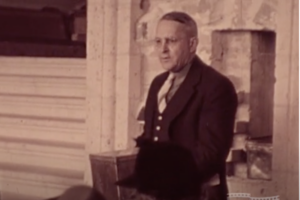It was good to see Gov. Greg Abbott declare early childhood education an emergency item this legislative session. And it’s been refreshing to hear a healthy debate at the Capitol about how best to run pre-kindergarten in Texas.
As the debate moves forward, lawmakers should remember that high-quality pre-K is good for children and is a cost-effective policy for the state.
The long-term outcomes and cost savings of pre-K are generally well known. For example, a 2006 study from Texas A&M University found that for every $1 invested in pre-K in Texas, the state reaps $3.50 in long-term returns. These findings are similar to other cost-effectiveness studies of high-quality pre-K programs, including results from the Perry preschool project.
Less well known is the fact that the gains for children and returns on investment accumulate immediately. Two recent studies found that children in Texas who attend pre-K are less likely to be retained or need special education services in first through third grades.
New analysis I conducted with my research team at the University of Texas’ LBJ School of Public Affairs shows that the lower rates of retention and special education services associated with Texas pre-K saved the state nearly $142 million in 2013-14 alone.
Add these findings to the growing body of evidence showing that children who attend pre-K have better math and reading test scores, are less likely to drop out of high school, and are less likely to use public services compared with children who do not attend pre-K, and the Texas program is clearly a wise investment.
So why not stop where we are and leave well enough alone, as some have suggested this legislative session? Because expanding pre-K and improving pre-K quality would mean even better results for student achievement and even more cost savings for Texas.
Several proposals this legislative session are attempting to enhance the Texas pre-K program. Turning half-day pre-K into full-day pre-K for children who already qualify would mean less burden on working parents and more hours of instruction for kids.
Other legislative proposals focus on improving the quality of pre-K instruction across the state. From limiting class sizes to including health screenings, there are several ways existing pre-K programs can be more effective.
If we’ve already decided as a state to invest in early childhood education, then let’s push for Texas to offer the highest-quality pre-K in the country.
As the legislative session enters its final month, I encourage lawmakers to let the research about the benefits of high-quality pre-K guide their policy decisions.
The research is clear that the higher the quality of the pre-K program, the better the payoff for student achievement. We also know that investing today has long-term benefits and cost savings. Texas lawmakers should also consider that today’s investment in pre-K has immediate short-term benefits for children and the state.
Cynthia Osborne is the Director of the Child and Family Research Partnership at The University of Texas’ LBJ School of Public Affairs.
A version of this op-ed appeared in the Texas Tribune, McAllen Monitor and The Rivard Report.
To view more op-eds from Texas Perspectives, click here.
Like us on Facebook.



